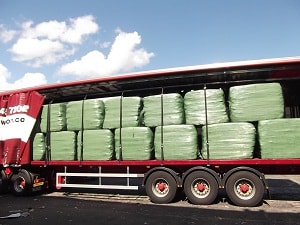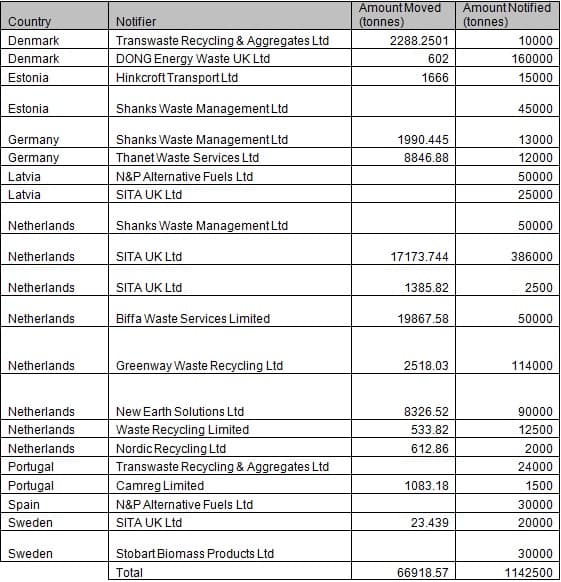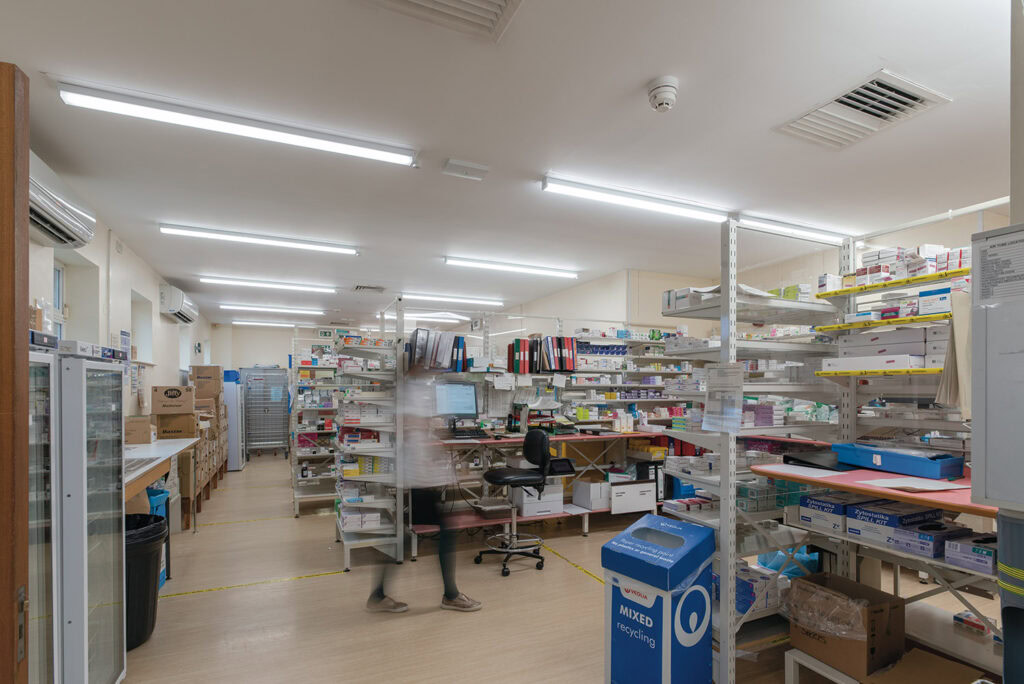The amount of refuse-derived fuel permitted for export topped one million tonnes over the past 12 months, Environment Agency figures have revealed.
Data obtained by letsrecycle.com indicates that, between September 9 2010 and September 9 2011, 14 UK waste and haulage companies were permitted to send a total of 1,142,500 tonnes of the fuel, which is also known as solid recovered fuel (SRF), overseas.

The permits applied to eight different European countries, although one of those Spain did not receive any material in the 12 month period covered by the Agency figures. The Agency said it was unable to reveal the exact final destination of the material exported.
Refuse-derived fuel is produced by shredding and dehydrating waste, but it still classed as waste until it is burned. This has led to some concerns over the legality of shipping the material abroad, given the limits on waste exports under the Transfrontier Shipment Regulations 2007.
However, its export is permitted under the Regulations as long as the recipient country gives its informed consent for the transport to take place.
Table – RDF exports permitted by Environment Agency from 09/09/10 to 09/09/11 – source: Environment Agency

Economically viable
Despite the large amount of fuel permitted for export, just 66,918.57 tonnes of material was actually exported during the September 9 2010- September 9 2011 period. The Environment Agency believes this is because waste companies are developing RDF processing as an option but it is not yet always viable for them to actually produce and export the material.
We think this is because waste companies are developing RDF processing as an option but which may not currently be commercially viable, operationally viable or they have not yet established the customer base, a spokeswoman for the Agency said.
The Agency has also indicated that it expects the overall amount of material permitted to reduce as companies establish contracts which mean they know exactly how much material they will be exporting.
Permitted companies
The latest list from the Agency shows an increase in the number of companies permitted to export RDF compared to those on a list obtained by letsrecycle.com in May 2011. These figures showed that 12 companies were permitted to export material between the period January 1 2011 to May 25 2011 (see letsrecycle.com story).
The new additions to the list are DONG Energy Waste UK Ltd and Nordic Recycling Ltd. The former, a subsidiary of the Danish-owned renewable energy company, was permitted to send 160,000 tonnes of RDF to Denmark over the 12 month period, but sent just 602 tonnes. Meanwhile, Kent-based paper recycling specialist Nordic were permitted to send 2,000 tonnes to The Netherlands and actually exported 612,86 tonnes of material.
Biffa exported the largest amount of material under a single permit during the 12 month period, sending 19,867.58 tonnes of material to The Netherlands. The company was permitted to send up to 50,000 tonnes.
SITA UK, however, had the largest potential for sending material overseas, with 433,500 tonnes of material permitted across five separate notifications, but the company actually sent only 18,583 tonnes of material, the vast majority of which went to The Netherlands.
SCA
Last week, paper recycling specialist SCA Recycling revealed that it had joined the list of companies permitted to export material for use as RDF. The firm will send the residue from its Southampton materials recycling facility around 6,000 tonnes-a-year of material to its operations at Sundsvall in Sweden. There, the fuel will be burnt in an energy-from-waste facility.
The material, comprised of residue from non-recyclable plastics and paper, will be baled, wrapped and transported by road to Tilbury Docks in Essex before being transported in bulk on SCA vessels.
As well as ensuring the Southampton MRF is now a zero waste operation, SCA Recyclings business development director Simon Barnes also highlighted the important role RDF export had to play in the companys plans.
Exporting this material is the best sustainable solution, he said. Economically this material has a value for energy producers, environmentally the solution is higher up the waste hierarchy than landfill and socially it provides employment.
Related links
Our role is to fully utilise residual materials and we have devised the RDF programme to
support the waste hierarchy and make the best use of SCAs integrated logistics network.
He added: Currently we believe the UK needs a mixed portfolio of energy sources to address its climate change and energy strategy ambitions and RDF can be part of this diverse strategy.











Subscribe for free